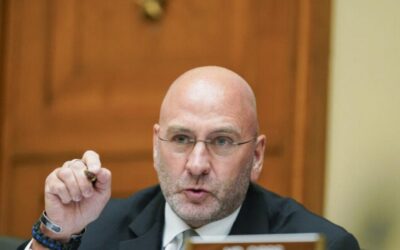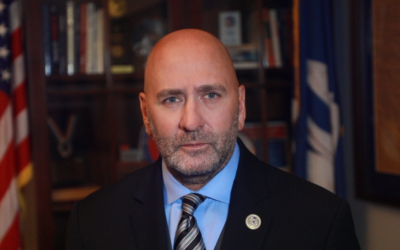On Aug. 18, The Daily Advertiser held a news forum for U.S. Rep. Clay Higgins to discuss his time in office and major issues, including the national debt.
“The size of our nation’s debt is colossal,” Higgins said. “It is certainly a serious threat to the future of our country and the stability of our republic.”
One of the reasons, Higgins said, contributing to the debt is the hundreds of government regulatory agencies and their lack of oversight. He claimed because the agencies do not require accountability or responsibility for things such as cost benefit analysis, project management or cost control, their projects consume more money than originally intended.
“The size and weight of our regulatory agencies have become so onerous, burdensome and sometimes even predatory upon the freedoms of the American people,” Higgins said. “A lot of what we have spent our time and energy on during this Congress, the bills that we’ve passed and the bills that my office has authored, all involve a common thread woven through them. This is to enhance the accountability and efficiency within our regulatory agencies.”
Higgins added one-sixth of total revenue the federal government takes in services the national debt. Because of this, that money cannot be used for services, roads or infrastructure, he said.
“The unique challenge that Congress faces at the moment,” Higgins said, “is striving to enhance those government services to the people and to restore fiscal responsibility.
“Everyone agrees that we need to reduce the national debt and deficit spending,” he continued. “We have to get ourselves on the path towards a balanced budget.”
Another topic at the forum was the need for nationwide flood insurance.
“Flooding is a universal issue across the country,” Higgins said. “I know only a few counties across the country that have not declared themselves flood disaster zones.”
Higgins brought up the National Flood Insurance Program (NFIP) for reauthorization during his term and worked with legislation to write bills to fix enforcement problems nationwide.
Higgins claimed, however, the compliance rate for this varies drastically across the country. He said, for example, Louisiana has an about 88 percent compliance rate, while Minnesota had an only about 8 percent compliance rate.
Because of this, Higgins added, the program is not solvent. However, he argued if people are required to have flood insurance in the future, then the NFIP will have enough money to help those who have been struck with disaster.
“I’ve argued with my colleagues that flooding is not a result of sea level,” Higgins said. “What it has to do with is water management and water control.”
After his speech, Higgins addressed questions from both the media and citizens, ranging from healthcare to domestic terrorism and homeland security.
“I was very pleased with his remarks on domestic terrorism and homeland security,” said M. Christian Green, an audience member. “I’d like to see some more action on that.”
“I agree with his legislation to improve the policies of flooding and I sympathize with his concern for the care of the people,” Alfonso Peterman, another audience member, said. “I think he is sincere and will get a lot done.”



